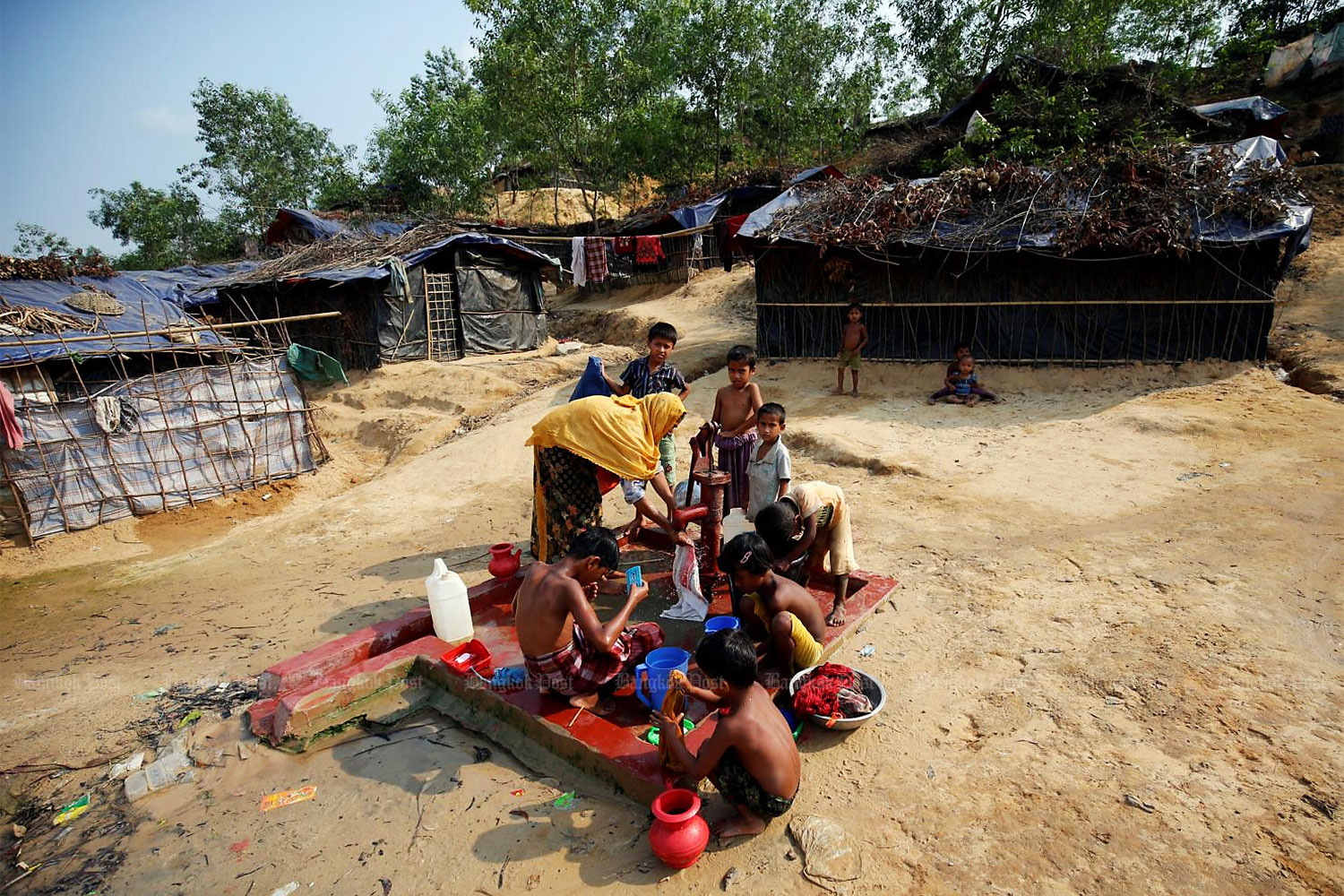
Every day I wake up to the deafening sound of children screaming, pots clanging and the busy life in the cramped camp I call home, nestled in the hills of Bangladesh. I live just a stone's throw from Myanmar, yet it feels like a world away.
Each morning, my first task is looking after my special son, Nizamuddin. Since he faces some extra difficulties, we help him live the best life that we can provide. My son is 10 years old, and he cannot speak. But he can listen well and manages to communicate with me. He has shown me many things in life. He has taught me so much.
We have been trying to get him medical attention, but we have not been able to provide him treatment yet because we don't have enough money to take him to town and we are not allowed outside of this area.
I accepted my son's challenges and adapted our life to live around his needs. Things became very difficult after coming here, following my displacement from Myanmar. Day by day, as he grows up, he is becoming frustrated and angry. He reacts to little things. My son, Nizamuddin, has also been suffering from many diseases over the years, including malnourishment. I feel sad he has to live this way.
Some days, it upsets me as he and other children seem to quarrel and shout a lot. Often about nothing much. We have taken him to all the nearest health clinics and sought support. But each time, we were told that we should take him to better facilities in towns or cities, which involves a lot of money that we don't have.
There are times my son is bullied, and I hear children saying that he won't be able to work, make his way in life, get a job or earn money, that he will always be our burden. It hurts me a lot. I don't want to believe it. I hope it will be false in the long run.
It really helps when my children find something to play with. I can concentrate on my daily tasks, find food for the family, prepare meals for my children, fetch water, and try to make plans for my son's treatment.
Eight years ago, my husband Mohammad Hossain died in a work accident, when we were still in Myanmar. Since then, I have been taking care of my three children, mostly on my own. I love my children very much. Often my children look after me. They take good care of me. I sometimes feel like I am a very lucky woman.
My older son, Shahabuddin, helps a lot, often looking after his brother when I'm busy. Shahabuddin loves writing and learning. He really wants his brother and younger sister to learn how to read and write. Every child should have this opportunity.
I cannot tell you how much I am looking forward to the end of this Covid-19 pandemic. I want to find some way of volunteering and earning so that I can take care of my son.
Before this dreadful pandemic, we used to go to a nearby community safe space run by Bangladesh Red Crescent Society volunteers. We all learnt so many valuable skills, and there were lots of opportunities with useful materials to make things, play and pass good times.
Sometimes I feel like it is all a bit too much, and I start to lose hope. But then I remember how I am happy about the fact that my three children are alive. Against the odds, we have been able to live together. That gives me joy.
My children feel very happy with the small things. They will play for hours with an abandoned toy they find in the dirt. They love food and a decent meal. They love to eat meat, fish and green vegetables. But all of these things are very scarce in the camp and very expensive.
There is a special thing that my Nizamuddin likes to eat: hot rice with smashed red chillies. It's very hot and spicy. It's cheap and easy to find where we live. Looking after my youngest son's health and wellbeing is my main priority. We barely have anything to sell so we can get him to health facilities in town.
We have been here for over three years now and I don't know what lies ahead. Often, I feel so lucky because my neighbours help me out. We discuss ways to improve my son's life. We talk about options to get him better treatment so all of us can have a decent future.
Setara Begum, 30, a mother and caregiver in the Cox's Bazar Bangladesh camps for the displaced people from Myanmar.